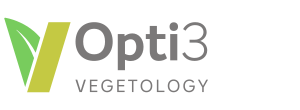Eicosapentaenoic Acid (EPA), Docosahexaenoic Acid (DHA) and Alpha-Linoleic Acid (ALA) are three types of fatty acids collectively referred to as Omega-3s, due to their chemical structure. EPA and DHA are long-chain Omega-3s, whereas ALA is a short chain omega-3. The long-chain Omega-3s are more efficient and act faster in the body. EPA and DHA offer numerous health benefits. When we talk about the importance of Omega-3 to our health, it is specifically EPA and DHA that offer the benefits. ALA needs to be converted into EPA by the body to be effective, but this conversion rate is very low so products like Flaxseed may claim to be Omega-3, but are not very effective.
Opti3 contains Rosemary. Is the level safe during pregnancy?
We are occasionally contacted by customers asking about the presence of Rosemary in Opti3, as some reports on the internet discuss Rosemary as being a herb to avoid during pregnancy. A very small amount of Rosemary extract is added to our oil as an antioxidant (as the oil can go off). The maximum amount of Rosemary per daily dose of 2 Opti3 capsules is 11.44mg. If you do have any concerns, please discuss them with your Doctor. You can also read the EFSA review and US FDA approval details.
Is Opti3 an alternative to fish oil for Omega-3?
Opti3 provides the body with EPA and DHA, the main Omega-3 fatty acids that are found in fish oils. Fish actually obtain their omega-3 through a diet of algae. We’ve simply cut the fish out of the loop and gone straight to the algae! In fact Opti3 is higher strength than most fish Omega-3s!
We obtain our Omega-3 fatty acids from algae and other natural ingredients. Algae are all around us, from seaweed we see washed up on beaches, to the green and red coloured substances we see in our ponds and birdbaths. Algae form the staple diet for fish, which is where oily fish obtain their Omega-3 fatty acids. We use special algae grown in a fully-controlled pharmaceutical facility to obtain our Omega-3. Unlike algae found in the sea, we can guarantee the presence of absolutely zero contaminants or toxins.
I’m not a vegetarian or vegan so shall I just take fish oil?
There are well reported downsides to fish oil. Fish may contain harmful levels of contaminants and toxins including heavy metals, PCBs and dioxins. In addition to the safety issues, there are growing concerns about diminishing fish stocks in our seas, largely due to unsustainable fishing practices. We recommend you take advice from the Food and Drug Administration about the latest safety guidelines associated with consuming fish. Opti3 offers an alternative that is 100% free from contaminants and toxins.
<< Go back to previous FAQ page
